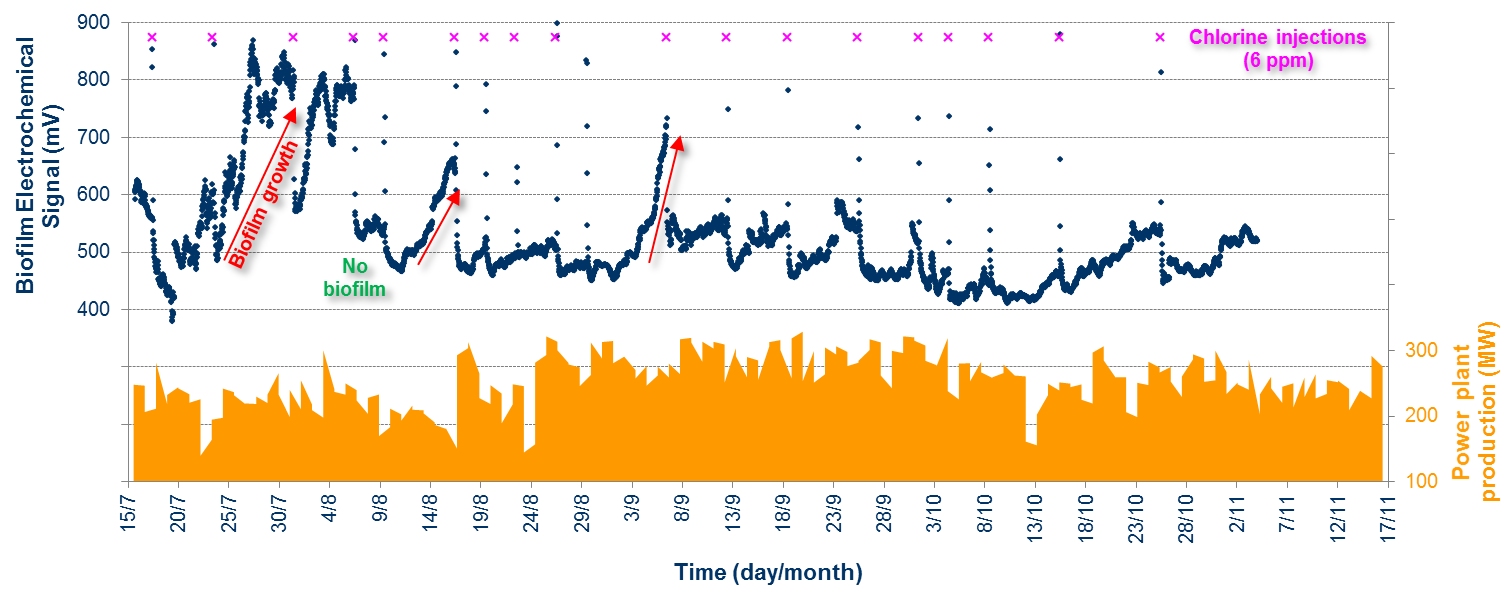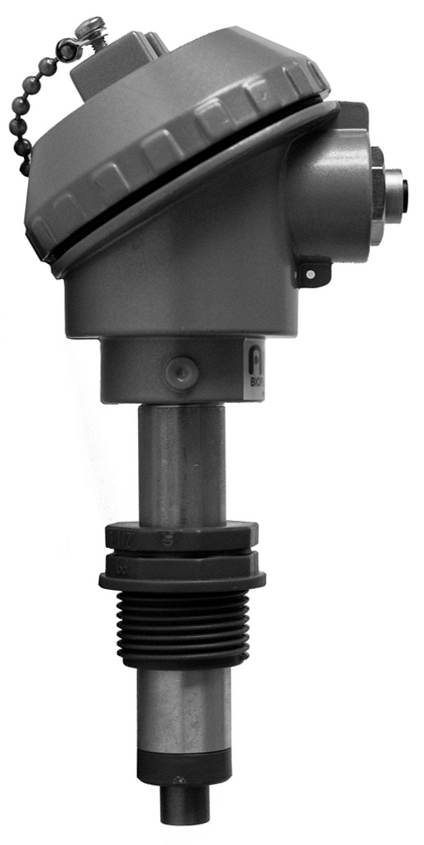Power plants [Download this application case as PDF file]
In a heat exchanger, a major component of any power plant, a 20 microns thick bacterial layer (biofilm) can cause a 30% decrease in thermal efficiency: biofilm, indeed, is up to 4 times more insulating than calcium carbonate scale. Moreover, biofilm can increase inorganic fouling, producing sticky substances that increase particles adhesion. For these reasons, large amounts of chemical substances (biocides) are used to limit microbiological growth in such systems.
The manager of this power plant decided to install an ALVIM Biofilm Monitoring System, in order to verify that the biocide treatment (chlorination, in this case) was effective in removing the bacteria settled inside the cooling water system.


Taking into account that ALVIM probe signalizes:
- the injection of oxidizing agents through a sharp and large increase of the signal, and
- biofilm growth through a relatively slow increase of 150 mV and more, starting in this case from about 450 mV (marked in figure as "No biofilm" level),
data plotted in the figure indicate that:
- the chlorination applied in the power plant was reaching the point where ALVIM was installed, as it can be seen from the signal peaks in correspondence to chlorinations;
- from mid-August on, the biocide treatment was able to keep biofilm growth under control, and the power production increased by more than 30%.
The ALVIM System made possible both to check the arrival of the chemical treatment, and its effectiveness against biofilm. In a power plant, as in most industrial environments, an appropriate management of biocide treatments can greatly improve both their effectiveness and the economic saving.
|
Do you have a similar problem with biofilm?
|





